How To Get Off Statin Drugs
Statin medications are highly controversial and I am going to show you How To Get Off Statin Drugs. Statin or Cholesterol lowering medication are the most widely prescribed drugs in the United States and and their potential side effects have become a hot issue. As our understanding of the heart disease story continues to evolve, some have questioned the role statins play in reducing heart disease.
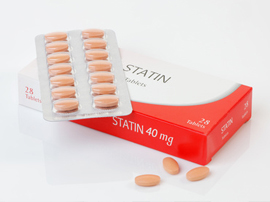
How To Get Off Statin Drugs By Living A Healthy Lifestyle
- Step 1: Eat Vegetables (Forks over Knives)
- Step 2: Monitor Your Body Weight (Don’t Let Yourself Gain Excess Weight)
- Step 3: Exercise Regularly (Exercise at least 5 times a week)
- Step 4: Make Sure You Get Enough Sleep (8 – 10 hours is ideal)
- Step 5: Take Vitamins (Omega-3 and B3)
- Step 6: Eat Flaxseeds (Good For Heart Health)
- Step 7: Drink Healthy Fruit Juices And Wine (Pectin & Resveratrol – known to help lower cholesterol)
I advise my patients to see statins, whenever possible, as an Interventional Medication rather than an excuse to keep living an unhealthy lifestyle. It’s my goal to educate patients and to help them transition to a healthy lifestyle that makes statins unnecessary. (Because of genetic factors, this is not always possible). Living statin free presents challenges, of course, but it can be done. So let’s get started.
Common Questions About Statin And Cholesterol Lowering Drugs
In this article I am going to answer the some of the common questions pertaining to statin and cholesterol lowering drugs.
- Why do people take statin medication?
- What do Statins Do?
- Are Statins Dangerous?
- How do statin drugs work?
- Can you just stop taking statin drugs?
- How long does it take for a statin to get out of your system?
- Are there any books on how to control your cholesterol?
- What are the best ways to get off statin drugs
Why Do People Take Statin Medication?
Despite what the fear-mongers say, your doctor is not in cahoots with the pharmaceutical companies to drain your wallet. The bottom line is that statins work. In the past 10 years there has been a 27% reduction in fatal heart attacks and much of this improvement is due to statins. But, remember statins can often times be used as a short term fix and is not always meant as a permanent regimen.
Statin Lower LDL Cholesterol
Statins are medicine in the form of a pill that is prescribed daily to patients who are candidates for heart disease or who have experienced a heart attack and have high or elevated LDL Cholesterol.
- Statins help to quickly reduce and control LDL levels often referred to as your LDL Cholesterol readings. Once the statin medication is prescribed to a patient, LDL Levels drop by 50% or more.
- Statins also help raise HDL Cholesterol by up to 15%.
- Within 2 to 4 weeks after starting a statin treatment, there should be major changes in cholesterol levels.
Are Statins Dangerous?
Statins for most patients should be a temporary fix and not something used long term. Extended use of statins in patients have been known to include the following side effects
- Muscle pain & damage
- Liver damage
- Type 2 diabetes caused by increased blood sugar
- Neurological side effects
For most patients, a change in lifestyle to one that is more healthy can dramatically reduce the need for statins.
How So Statin Drugs Work?
Statins are a prescription drug that needs to be monitored by a professional doctor such as a cardiologist who specializes in the heart. Statins work in 2 ways to help patients.
- Statins eliminate the body’s ability to produce cholesterol by blocking the enzyme that creates cholesterol. By blocking production, total cholesterol is lowered.
- Statins also help the body reabsorb existing cholesterol. Many bodily functions need cholesterol to perform basic activities like digestion of food, absorb vitamins and make hormones. Since statins block the production of cholesterol and your body still needs cholesterol to function, statins help absorb cholesterol that has become plaque in your arteries.
The combination of eliminating the body’s production of cholesterol and the absorption of plaque reduces overall cholesterol and lower chances of a heart attack.
Can You Just Stop Taking Statin Drugs?
There are 2 points that every person taking statin medication(s) must know and realize:
- The reasons why you are currently taking a statin medication (Your Physician Should Have Explained Why Your Should Be On Statins)
- What you need to do before you can stop taking a statin medication.
In general if you have no known underlying heart disease and have total cholesterol count under 200 or have been previously diagnosed with heart disease and have total cholesterol count under 150, you are probably a good candidate to stop taking statin or cholesterol lowering drugs.
Best advice is to always consult with your physician before stopping.
How Long Does It Take For Statin To Get Out Of Your System?
Once you stop taking Statins, some of drug’s effects will wear off within 24 hours, but other side effects may take weeks or months until the body is fully functioning normally.
Are There Any Books On How To Control Your Cholesterol?
I have written several books that discuss how to lower your cholesterol, get off statin drugs and live a healthier life.
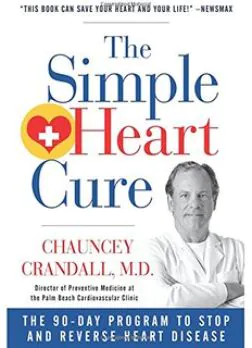
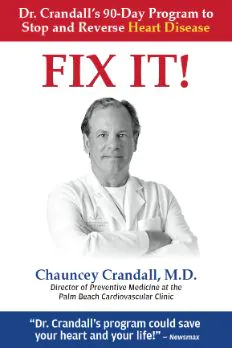
What Are The Best Ways To Get Off Statin Drugs?
Okay, now that you have a better overview of statins, here are 7 steps to get off statin drugs and how to get off your cholesterol medication.
7 Steps To Help You Get Off Your Cholesterol Medication
- Step 1: Eat A Plant Based Diet
- Step 2: Maintain Ideal Body Weight
- Step 3: Exercise 5 Times A Week (1 hour a day)
- Step 4: Get Proper Sleep (8 to 10 hours a day)
- Step 5: Get Your Vitamins (Omega-3 and B3)
- Step 6: Consume Flaxseeds (Good For Heart Health)
- Step 7: Drink Juices And Red Wine (Helps you get Pectin & Resveratrol that help lower cholesterol)
- Eat A Plant Based Diet
- Maintain Ideal Body Weight
- Exercise 5 Times A Week (1 Hour per Day)
- Get Proper Sleep (8 to 10 hours)
- Get Your Vitamins (Omega-3 and B3)
- Flaxseed Is Good For Heart Health
- Juices And Red Wine
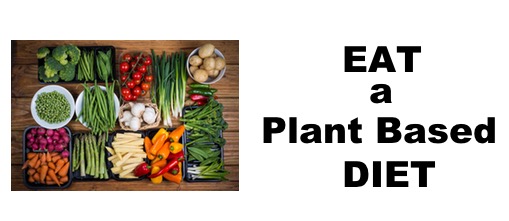
The first step may surprise you because it’s not demanding at all. It’s a step, however, that many never take or fail to sustain. Build a relationship with your physician. Let him/her know that you want to know how to get off statin drugs and where you stand in regard to heart-healthy targets. Then, in consultation with your doctor, put together a game plan for doing so. As I’ve said, this will demand lifestyle modification. Without changing the way you live, there’s no solid reason to get off your statin medication
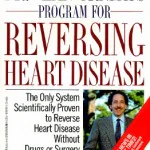
Part of this game plan must be eating a plant-based diet. Depending on a patient’s particular profile, I recommend either the Dean Ornish Heart Disease Reversal Diet or the South Beach Diet. If you have known heart disease, the Ornish diet is better because it most effectively cleanses the system of excess fat. The South Beach Diet is usually for those with risk factors but no known heart disease. This diet allows more latitude and can still get a person to the recommended targets. Although the Ornish Diet puts no restrictions on calorie intake – mainly because it’s hard to consume too many calories eating fruits and vegetables, you’ll need to limit your calories on the South Beach Diet or a Mediterranean diet (another good one). A typical unrestricted diet for the average adult contains about 2,400 calories per day. Aim to keep your calorie intake between 1,500 and 1,800 calories. The lower end is for women; the higher end is for men.
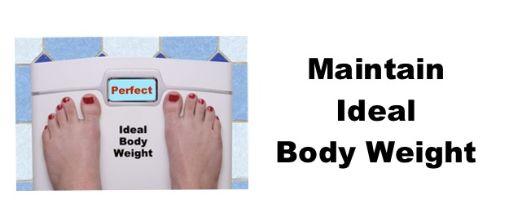
Get to and maintain your ideal body weight. One way to judge your ideal body weight is via body mass index (BMI). Your BMI represents the percentage of your total body weight that’s due to fat. It should be under 25. Many health clubs have simple handheld devices that provide a BMI reading. These also can be purchased at any major drug store.
Another way to think about ideal body weight is to remember what you weighed as a senior in high school. How far away are you? At that time your total cholesterol count- unless you had a weight problem then, was probably in the 120s. That’s the range that’s typical in populations without heart disease. So think “high school skinny.” For many of us, that’s a long way to go. You’ll need to approach this target weight, though, to sufficiently change your biochemistry.
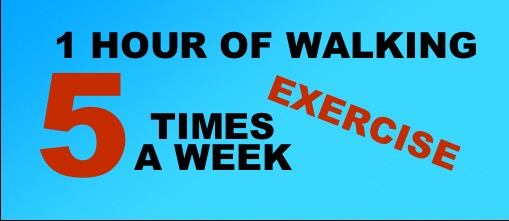
You need to start exercising five days a week for one hour per day. Walking is generally the best exercise available because it doesn’t place too much stress on the knees, hips, and back. If you like to run, you may want to mix running into your walks, which is how people have been moving ever since civilization began. If you want something more rigorous, then try weight lifting or exercise bands. Tennis, swimming, and ballroom dancing are also good. The invention of golf carts decreased the health value of golf appreciable. But you can still swim or ride a bike!
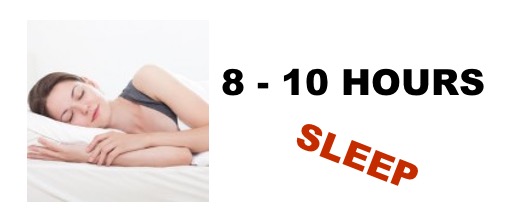
You must get plenty of sleep – much more than our our workaholic culture commonly believes. Not just eight hours a night, but eight to 10 hours on a regular basis. Sleep is the body’s main way of dealing with stress. Specifically, and this might surprise you, lack of sleep results in the liver pumping out excess cholesterol!
Besides sleeping more, it’s important to take additional measures to reduce stress. The greatest of these is recruiting the support of your loved ones. Talk to your wife, husband, or others in your life about your desire to live in a healthy way. Rely on them for the encouragement and accountability you need.
Remember, there are only two ways to reduce your cholesterol: Stop the production of cholesterol in your liver, or stop its absorption in the small intestine. Adding supplements to your diet can help reduce cholesterol, but most people have to be at their targets, eating right, and exercising before supplements can help them stay there. One supplement works through the liver just like a statin – because it is a statin, a natural one. Mevastatin is produced naturally by red rice yeast. You can add red rice yeast to your diet by picking up a container at the grocery or health foods store. Be careful of the provider, however. In the past couple of years there have been problems with red rice yeast produced in China. Suppliers were adding pravastatin to their product to heighten its cholesterol-reducing properties. This posed a health risk as the amount of statin people were taking – unknowingly – varied wildly.
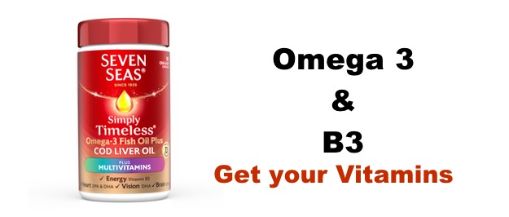
Omega-3 fatty acids from fish oil and vitamin B3 (niacin), remain the champions of natural supplements. (Editor note: discuss the use of niacin with your doctor, as recent research has showed that over use of niacin could in fact be damaging to your heart). Both fish oil and niacin boost HDL, plump up LDL particles, and often times reduce inflammation. Fish oil even has a mild analgesic effect, for which your aching joints will thank you.
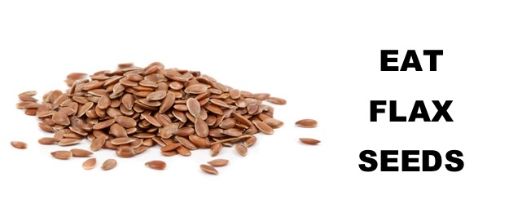
New evidence is emerging that flaxseed contains three ingredients that aid in maintaining heart health. Flaxseed is rich with the plant form of omega-3 fatty acids, lignans, which contain both plant estrogen and antioxidant qualities, plus soluble and insoluble fiber. Flaxseed seems to help not only with a person’s cholesterol profile but even in maintaining heart rhythm.
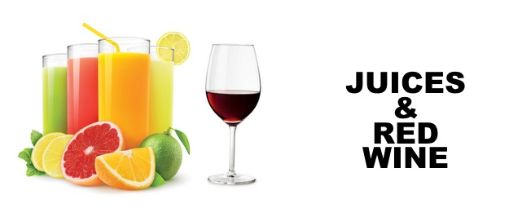
Organic grape juice, apples, and other foods that contain pectin help eliminate cholesterol through the gut. Garlic has a mild effect as well.
A glass of red wine a day, because it contains resveratrol, an antioxidant, also helps maintain heart health. Be careful, though: two or more glasses of red wine a day has been shown to increase cancer risk. In this light, I’d recommend having a glass of red wine no more than 2 or 3 times per week. Wine and other alcoholic beverages also cause triglyceride counts to climb. Oatmeal, oat bran, and other whole grain products can help with a small reduction, about 5 percent, in total cholesterol.
For those with risk factors or established heart disease, the challenges of living statin free in our culture can be daunting. If you take the seven steps I’ve outlined, though, starting with establishing that all-important relationship with your physician, you’ll have the best chance of success. You’ll feel 1,000 times better, too -that I can promise. I certainly hope you conquer your need for statin drugs.
Thank you for reading this heart health tip of the day. To your heart health,
Please continue to read the many articles I provide in my blog. Each article contains valuable life saving information that can help anyone struggling to overcome heart disease. I wish you much success in your pursuit of heart health.
